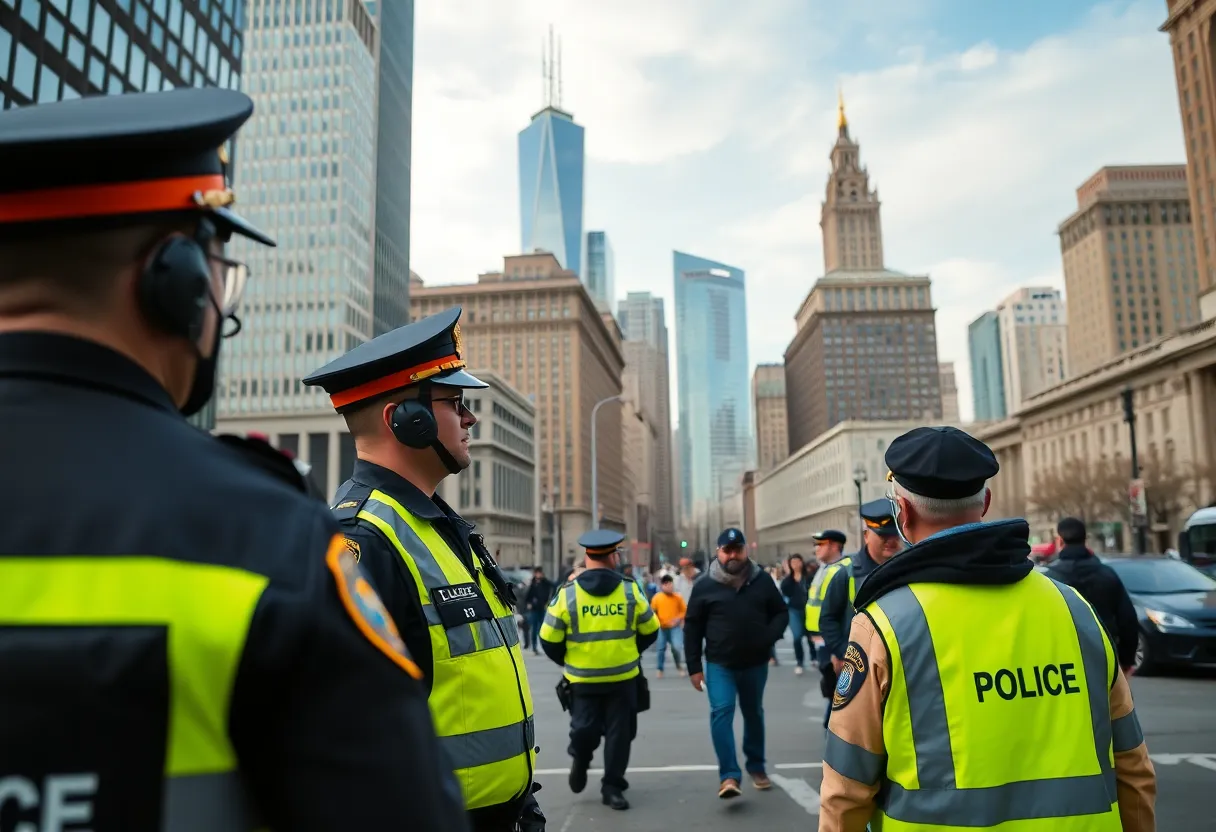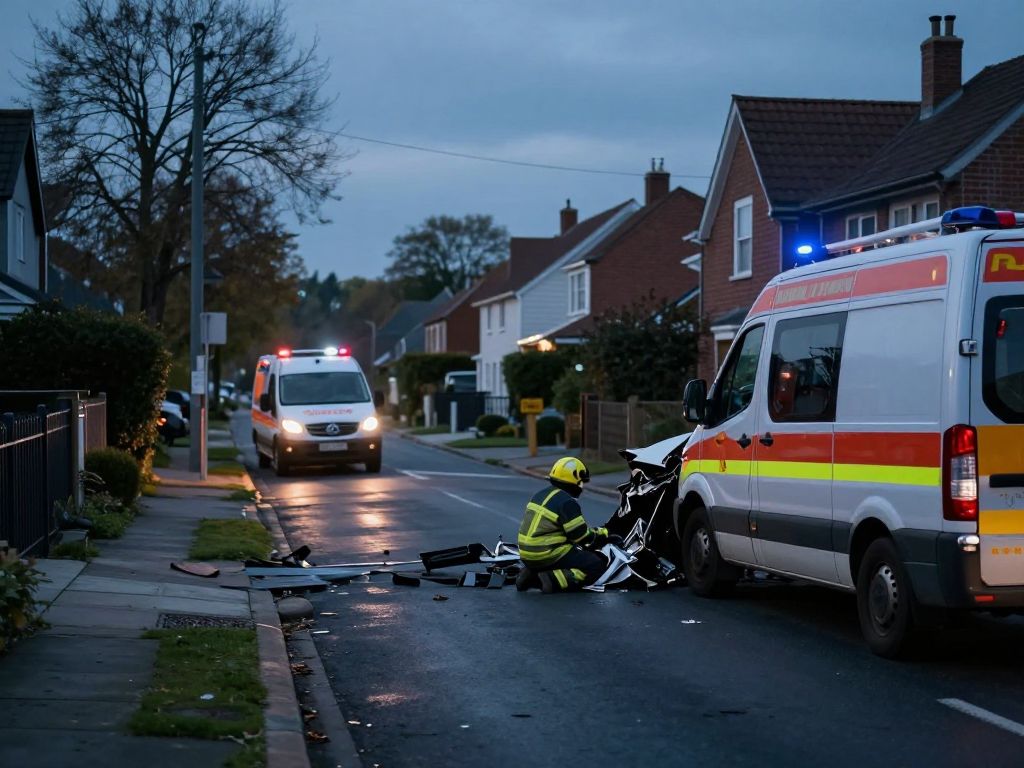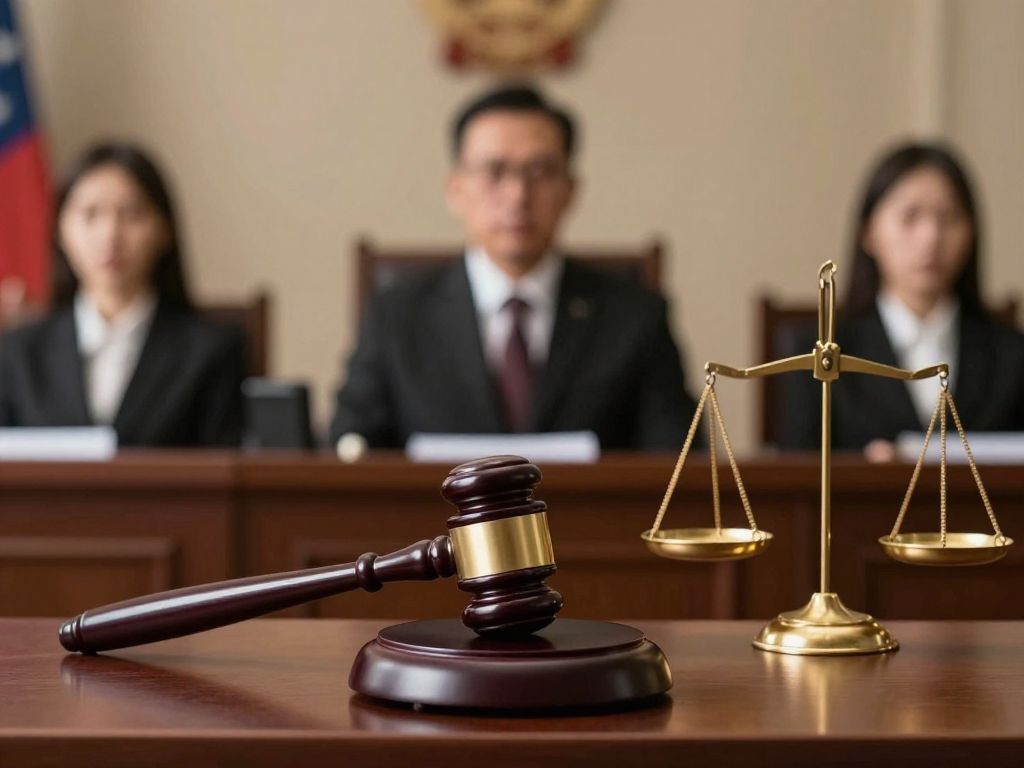Chicago, Boston, September 9, 2025
News Summary
Tensions rise between the federal government and Chicago and Boston as the Trump administration intensifies immigration enforcement, suggesting military deployment to ensure public safety. While federal authorities conduct targeted arrests under operation Patriot 2.0 in Boston, Chicago prepares for local operations. Responses from local officials include legal challenges, executive orders asserting local control, and community outreach to inform residents of their rights amidst heightened enforcement activity.
Chicago — Tensions between the federal government and two major U.S. cities, Chicago and Boston, escalated this month as the Trump administration increased immigration enforcement actions and signaled willingness to deploy federal or National Guard forces to address public safety concerns. Federal arrests by Immigration and Customs Enforcement (ICE) in Boston and planned operations around Chicago, combined with public statements and social media posts by national leadership, have produced legal challenges, local executive orders, and preparations by community groups and state officials.
What happened first
Federal authorities carried out a series of immigration arrests in Boston under an operation identified internally as Patriot 2.0, targeting individuals described by the administration as criminal noncitizens. In Chicago, the federal government announced plans for increased immigration enforcement operations, designating Naval Station Great Lakes as a coordination hub for roughly 300 federal agents and planning a separate 45-day processing operation in a suburban location for federal immigration processing.
Federal threats and local responses
The president issued an executive order directing the Secretary of Defense to prepare state National Guard units for missions described as quelling civil disturbances and ensuring public safety. That action followed social media posts that included militaristic imagery of Chicago and language implying potential federal force deployments. Local leaders responded with legal and administrative measures. Chicago’s mayor issued an executive directive demanding withdrawal of threat language and asserting local control of police operations. The mayor framed a federalized military or National Guard deployment as an inappropriate response to ongoing urban violence and public safety challenges.
Judicial and political developments
Previously, a U.S. District Judge found certain federal deployments of troops in a major U.S. city to be in violation of federal law, prompting the administration to step back from immediate troop deployment in that instance. State officials in Illinois and Massachusetts voiced opposition to federal actions; in both states, governors characterized planned federal measures as politically motivated and warned of potential legal challenges to any attempts to deploy troops for domestic law enforcement roles.
Enforcement operations and legal actions
The Department of Justice filed suit against the City of Boston, its mayor, and local police over sanctuary policies, alleging that these policies shelter criminals and impede federal enforcement. ICE subsequently arrested dozens of people in Boston as part of the administration’s enforcement strategy. Federal officials signaled similar sweeps in Chicago, noting plans to detain and process individuals identified during operations.
Local officials and community reaction
Boston’s mayor maintained that city resources will not be used to assist federal immigration enforcement and argued that such assistance would not increase public safety. Massachusetts’ governor condemned federal enforcement tactics as political intimidation rather than genuine safety measures. In Chicago, local leaders criticized federal plans to use National Guard or military-style forces to address gun violence, saying those measures are misdirected and risk escalating tensions. Community groups in both cities prepared to inform residents of their legal rights and to track enforcement activity, with particular concern relating to heightened activity during cultural events such as Mexican Independence Day.
Operational details and comparisons
Officials described the Chicago hub at Naval Station Great Lakes as supporting roughly 300 agents who would undertake targeted actions in coordination with Department of Homeland Security plans. The DHS outlined a discrete processing period intended to streamline federal handling of arrests. Authorities characterized the operations as part of a broader effort to focus on noncitizens with criminal records and to replicate enforcement approaches used recently in other large cities.
Broader context
Observers note that recent ICE actions in Los Angeles displayed similar tactics of targeted sweeps, and the administration appears to be sequencing enforcement into other Democratic-led cities. The tension over immigration enforcement intersects with ongoing debates over sanctuary policies, the scope of federal authority for domestic deployments, and local control of policing. Legal actions now pending and likely suits anticipated by state and local officials could determine the limits of federal operational strategies and the use of military or National Guard units in domestic roles.
Immediate implications
Residents in affected areas can expect increased federal law enforcement presence in specific neighborhoods and potential checkpoints or processing centers. Local governments are preparing administrative and legal responses, while advocacy organizations plan community outreach to inform individuals of their rights and to monitor enforcement activity. State officials have indicated readiness to challenge federal moves through the courts if deployments proceed.
Background
The clash reflects longer-standing disputes between the federal government and cities that adopt sanctuary-style policies limiting local cooperation with federal immigration authorities. Federal officials argue such policies obstruct enforcement against noncitizens with criminal records, while city leaders maintain that local policing priorities and community trust would be harmed by active collaboration with federal immigration operations. The legal framework around the use of federal troops or National Guard units for domestic law enforcement continues to be a contested area, with several court rulings shaping the limits of executive authority.
FAQ
What actions have federal authorities taken?
Federal authorities have conducted targeted immigration arrests in Boston under an operation labeled Patriot 2.0 and announced increased ICE activity centered at a Naval Station hub near Chicago, along with a planned 45-day processing operation in a Chicago suburb.
Is the federal government using military troops in these cities?
The administration ordered preparations to use state National Guard units for public safety roles and used social media posts suggesting possible military-style action. A prior federalized troop deployment was found to violate federal law, and officials stepped back from immediate troop deployment in that instance.
How have local leaders responded?
City mayors issued orders and statements asserting local control of police and refusing to provide local resources for federal immigration enforcement. State governors criticized federal actions and signaled potential legal challenges.
What should residents do if federal agents arrive at their home?
Residents should remain calm, ask to see official identification and judicial warrants before consenting to entry, avoid providing false information, and seek legal counsel. Community groups recommend knowing local rights and having emergency contacts for legal assistance.
Will enforcement increase around cultural events?
Officials are preparing for heightened enforcement activity during large cultural gatherings, including Mexican Independence Day, and community organizations are planning outreach and monitoring efforts.
Quick reference table: Practical information for residents
| Topic | Recommended Action | Where to seek help |
|---|---|---|
| Encounter with federal agents at home | Ask to see ID and a judicial warrant; do not consent to searches without a warrant; remain calm and avoid providing false information. | Contact a licensed immigration attorney or local legal aid providers; community hotlines and legal clinics. |
| Stopped on the street | Ask if you are free to leave; do not lie about immigration status; request to speak with a lawyer if detained. | Local legal assistance organizations, emergency contacts. |
| Community events and gatherings | Stay informed about local enforcement notices; plan meeting points and communication strategies; carry emergency contact info. | Community groups organizing outreach and “know your rights” sessions. |
| Legal challenges and public policy | Monitor notices from city and state officials regarding executive orders and lawsuits; follow official legal guidance rather than rumors. | State attorney general offices and city legal departments for public updates. |
Deeper Dive: News & Info About This Topic
HERE Resources
Boston Voters Cast Ballots in Preliminary Municipal Election
Federal Operation Patriot 2.0 Launched in Boston
Foley Hoag LLP Releases Update on Massachusetts Legal Developments
Federal Enforcement Operation ‘Patriot 2.0’ Targets Boston Area
Federal Immigration Operation Patriot 2.0 Launched in Massachusetts
Multiple Arrests and Violence Reported in Lynn
Boston Mayoral Preliminary Election Approaches
Governor Healey Criticizes Federal Immigration Crackdown
Federal Enforcement Operation Patriot 2.0 Launches in Boston
ICE Launches Operation Patriot 2.0 in Massachusetts
Additional Resources
- Smart Cities Dive
- Wikipedia: Immigration enforcement in the United States
- CNN
- Google Search: ICE enforcement Chicago Boston
- Reuters
- Google Scholar: Federal immigration policy Trump
- NBC News
- Encyclopedia Britannica: Immigration
- ABC News
- Google News: Boston Chicago immigration raids

Author: STAFF HERE BOSTON WRITER
The BOSTON STAFF WRITER represents the experienced team at HEREBoston.com, your go-to source for actionable local news and information in Boston, Suffolk County, and beyond. Specializing in "news you can use," we cover essential topics like product reviews for personal and business needs, local business directories, politics, real estate trends, neighborhood insights, and state news affecting the area—with deep expertise drawn from years of dedicated reporting and strong community input, including local press releases and business updates. We deliver top reporting on high-value events such as Boston Marathon, Head of the Charles Regatta, and Boston Harborfest. Our coverage extends to key organizations like the Greater Boston Chamber of Commerce and Associated Industries of Massachusetts, plus leading businesses in finance, biotech, and insurance that power the local economy such as Fidelity Investments, Biogen, and Liberty Mutual Insurance. As part of the broader HERE network, we provide comprehensive, credible insights into Massachusetts's dynamic landscape.





